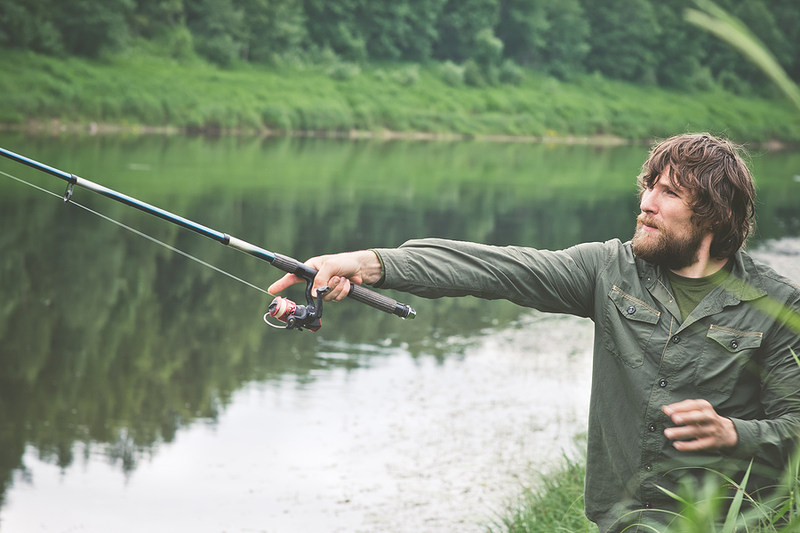There’s a moment most men recognise. You’re standing in the middle of a supermarket, or slumped behind a laptop, or lying in bed staring at the ceiling at 3am—and it hits you like a punch to the chest: I just want out. Not just a holiday. Not just a weekend in a tent. You want to vanish. Switch off the phone, close the tabs, burn the to-do list. Maybe even grow a beard and live in a cabin. It’s not madness. It’s not a midlife crisis. It’s something deeper and more primal. The urge to escape.
So why do so many men feel like going off grid?
The Digital Leash
For all the freedom we supposedly enjoy in modern life, a lot of us feel more chained than ever. Phones ping constantly. Work follows us home. We’re expected to answer emails, join Zoom calls, stay in touch, be reachable, stay updated, and generally be “on” at all times. Even downtime isn’t really downtime anymore—it’s scrolling through social media, replying to WhatsApp groups, checking the news, arguing in comment sections, or doomscrolling until we feel worse than when we started.
That always-on culture quietly saps something essential. You lose silence. Solitude. The ability to just be. And for men—who often internalise stress and aren’t always the best at expressing when we’re overwhelmed—the grind of constant digital noise can turn into an almost claustrophobic pressure. Escaping it starts to sound less like a fantasy and more like a survival instinct.
Responsibility Overload
Let’s not ignore the elephant in the room: being a man still comes with a weight of responsibility. Whether it’s being a provider, a dad, a partner, or just someone others rely on, there’s an unspoken pressure to keep things running smoothly. And while responsibility isn’t a bad thing—it can give life meaning—it can also become exhausting when there’s no room to breathe.
The urge to escape isn’t always about shirking duties. More often, it’s about needing space to reset. To remember who you are when you’re not answering to someone or fixing something. To stop being “the man of the house” or “the guy with the plan” and just be a human being with thoughts of his own.
Nature vs Nonsense

There’s something about being in nature that hits different. Properly in it—not a stroll in the local park, but deep in the woods or up a mountain or by a loch where your phone signal dies and nobody can reach you. That’s when your shoulders drop and your mind starts to clear.
It’s no coincidence that so many men fantasise about buying land, building a cabin, chopping wood, and living off the grid. It’s not just about peace and quiet. It’s about control. You make your own food, your own shelter, your own rules. There’s no algorithm deciding what you see. No small talk. No office politics. Just you, the trees, and maybe a dog if you’re lucky.
In a world full of complexity and grey areas, there’s a strange clarity in chopping wood and boiling water. That return to basics taps into something ancient—something male—that modern life rarely satisfies.
The Myth of the Loner
We should talk about the romantic image of the lone man in the wild. It’s a powerful archetype: the cowboy, the wanderer, the hermit. These characters are everywhere in stories and films. They go off on their own, away from society, and seem to find a kind of peace that the rest of us envy.
But it’s not about isolation for the sake of it. Most men don’t actually want to be alone forever. What we’re really craving is autonomy. Space where nobody’s watching, judging, interrupting, or needing anything from us. Time to think in straight lines again. Time to reconnect with what we actually want—not what’s expected of us.
Even just a few days like that can be enough. It’s not about going full Grizzly Adams. It’s about reclaiming a bit of mental territory that’s slowly been eroded by work, family, technology, and expectations.
Escape Doesn’t Mean Failure
Here’s the thing: wanting to escape doesn’t make you weak. It doesn’t mean you’ve failed. It doesn’t mean you’re running away from life. In fact, it often means the opposite. It means you’re self-aware enough to recognise that something’s off—and strong enough to want to do something about it.
Modern masculinity still doesn’t make enough room for healthy detachment. We’re taught to push through, suck it up, keep going. But sometimes, what we really need is to stop. Not forever. Just long enough to remember what we’re actually trying to get through to.
Going off grid—whether it’s literally or just unplugging for a while—isn’t a weakness. It’s a recalibration. A way to strip away the distractions and noise and come back to yourself.
Making it Happen

Of course, most of us can’t just disappear into the forest indefinitely. We’ve got jobs, families, bills, and lives to live. But the good news is, you don’t have to go full survivalist to scratch the itch.
Maybe it’s a solo camping trip. A few days hiking in Scotland with no phone. An afternoon in a shed with the phone off and a project to work on. Even a long walk where you leave your earbuds at home and let your thoughts breathe.
The important part is permission. Give yourself permission to switch off. To not reply. To not be productive. To just exist, quietly, on your own terms for a while.
The Return
Funny thing about going off grid—even briefly—is that you usually come back better. You’re more present. Less snappy. More patient. Less overwhelmed. You remember what matters, and what doesn’t. You realise how much energy you were spending on things that don’t give anything back.
And maybe that’s the real point. The urge to escape isn’t about leaving life behind. It’s about returning to it with a clearer head and a stronger heart. You go out into the wild so you can come back a better man.
So the next time that gut-deep feeling hits you—that overwhelming craving to vanish—don’t ignore it. Don’t beat yourself up. Listen to it. It’s trying to tell you something. Maybe it’s time to log off. To take a breath. To go quiet for a bit.
Not forever.
Just long enough to remember who you are when the world stops shouting.
